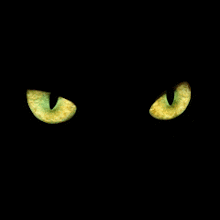I remembered watching ISWAK (It Started With A Kiss) and in one of it's episode where Yuan Xiang Qin (Ariel Lin), going inside the kitchen, is having difficulty seeing in the dark. While watching it, I thought of something I have read about an eye condition whereas the person cannot see well in the dark and if not treated immediately it will result to total blindness.

Nyctalopia (Greek for "night blindness") is a condition making it difficult or impossible to see in relatively low light. It is a symptom of several eye diseases. Night blindness may exist from birth, or be caused by injury or malnutrition (for example, a lack of vitamin A).
The most common cause of nyctalopia is retinitis pigmentosa, a disorder in which the rod cells in the retina gradually lose their ability to respond to the light. Patients suffering from this genetic condition have progressive nyctalopia and eventually their daytime vision may also be affected. In X-linked congenital stationary night blindness, from birth the rods either do not work at all, or work very little, but the condition doesn't get worse. Another cause of night blindness is a deficiency of retinol, or vitamin A, found in fish oils, liver and dairy products. In the Second World War misinformation was spread by the British to cover up the reason for their pilots' successful night time missions. Their success was, in the misinformation, attributed to improved night vision and pilots flying night missions were encouraged to eat plenty of carrots, which contain carotenoids and can be converted into retinol. The actual reason for their success was their use of advanced radar technologies.
The opposite problem, known as hemeralopia, is much rarer.
The outer area of the retina is made up of more rods than cones. The rod cells are the cells that enable us to see in poor illumination. This is the reason why loss of side vision often results in night blindness. Individuals suffering from night blindness not only see poorly at night, but also require some time for their eyes to adjust from brightly lit areas to dim ones. Contrast vision may also be greatly reduced.
Causes
- Vitamin A deficiency
- retinitis pigmentosa
- congenital night blindness
- pathological myopia
- peripheral cortical cataract
- oguchi's disease
Historical usage
Aulus Cornelius Celsus, writing ca. 30 AD, described night blindness and recommended an effective dietary supplement: "There is besides a weakness of the eyes, owing to which people see well enough indeed in the daytime but not at all at night; in women whose menstruation is regular this does not happen. But success sufferers should anoint their eyeballs with the stuff dripping from a liver whilst roasting, preferably of a he-goat, or failing that of a she-goat; and as well they should eat some of the liver itself."
Historically, nyctalopia, also known as moonblink, was a temporary night blindness believed to be caused by sleeping in moonlight in the tropics.
Sources: Wikipedia.org
Picture reference: Jamejam Online




0 comments:
Post a Comment